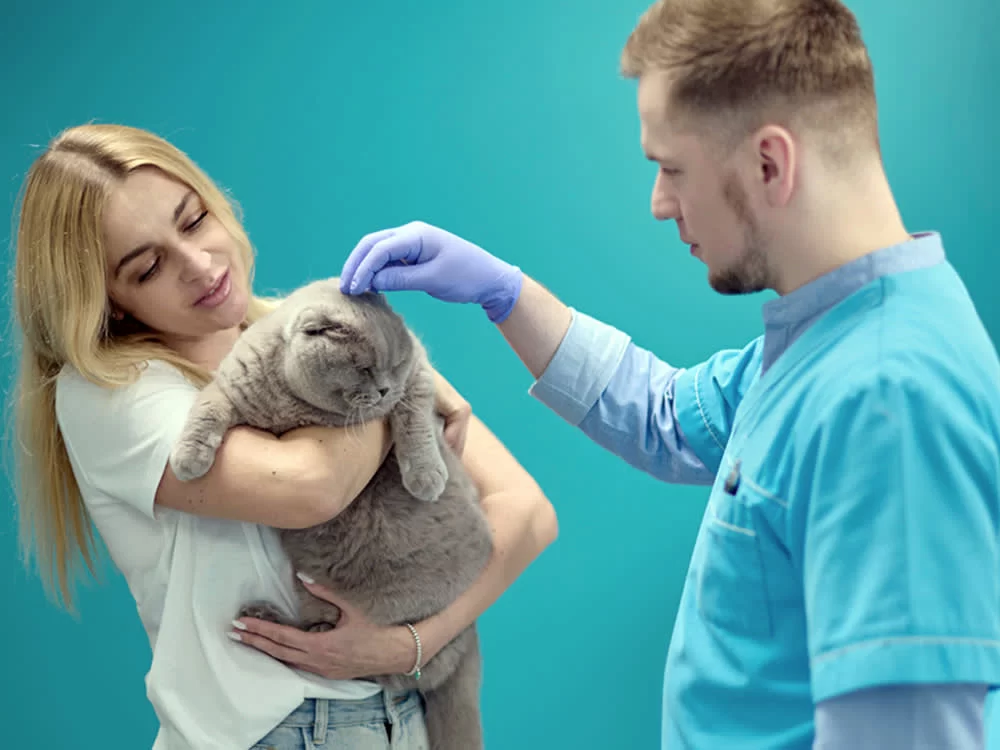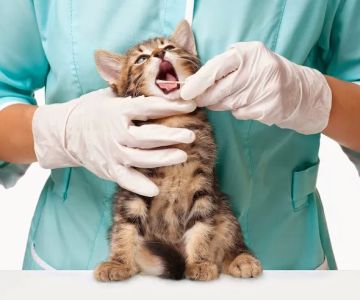As pet owners, we want to make the best decisions for our furry friends, especially when it comes to their health. But what if the advice or diagnosis you receive from your vet doesn’t sit right with you? Or perhaps your pet’s condition is not improving as expected? In these situations, seeking a second opinion can be a helpful way to explore all available options and ensure the best outcome for your pet’s health.
In this article, we’ll explore the key reasons why you might want to seek a second opinion for your pet’s health, when it’s appropriate to do so, and how to go about it. We’ll also discuss some practical advice and real-life cases that demonstrate the importance of consulting another veterinary professional. Let’s dive into it!
- Why You Should Seek a Second Opinion for Your Pet’s Health
- Signs It's Time to Consult Another Vet
- How to Seek a Second Opinion for Your Pet
- Real-Life Case Study: When a Second Opinion Made All the Difference
- Recommendations for Pet Owners
Why You Should Seek a Second Opinion for Your Pet’s Health
Seeking a second opinion for your pet’s health can seem like an extra step, but it’s an essential part of being an informed pet owner. Whether it's a second diagnosis or exploring alternative treatment options, getting an additional perspective can help ensure your pet receives the best care possible. Here are a few reasons why seeking a second opinion is a wise choice:
- Uncertainty or Disagreement with Diagnosis: If your pet's diagnosis feels uncertain, a second opinion can provide clarity. Veterinary medicine, like human medicine, can have multiple interpretations and treatment options. A second opinion offers peace of mind, especially if your pet’s condition is complicated.
- Your Pet’s Condition Isn’t Improving: If your pet is not showing improvement after a course of treatment, it may be time to consult another vet. There could be alternative treatments or therapies available that the first vet did not recommend.
- Different Treatment Options: Sometimes, there is more than one way to treat a health condition. A second opinion can provide different approaches that may be less invasive, less expensive, or have fewer side effects.
- Seeking a Specialist: If your pet has a rare condition or one that requires specialized care, a second opinion might involve consulting with a veterinary specialist who has experience with that specific condition.
Signs It's Time to Consult Another Vet
Knowing when to seek a second opinion for your pet can be tricky, but there are a few key signs that may indicate it’s time to look for another opinion:
- Your Pet’s Symptoms Persist or Worsen: If your pet's symptoms are not improving with treatment, this may be a clear sign that the original diagnosis or treatment plan needs to be reconsidered.
- The Diagnosis Seems Incomplete or Unclear: If your vet cannot provide a clear explanation of your pet’s condition or if you feel unsure about the diagnosis, it’s completely reasonable to seek another opinion.
- You're Unhappy with the Care or Communication: If you feel that your current vet isn’t listening to your concerns or not providing enough information, another professional perspective might be helpful.
- The Treatment Plan Is Too Expensive or Not Effective: Sometimes the proposed treatments are financially draining, and you might want a second opinion to explore more cost-effective alternatives.
How to Seek a Second Opinion for Your Pet
If you decide to seek a second opinion for your pet’s health, here’s how to go about it:
- Do Your Research: Look for a vet with expertise in the condition your pet is facing. This could be another general practitioner or a specialist, depending on the issue.
- Be Transparent: When you visit the second vet, be open about the previous diagnosis, treatments, and the reasons you’re seeking another opinion. This will help the new vet give you a well-informed assessment.
- Take All Relevant Information: Bring along your pet’s medical records, including test results, diagnosis, and treatment history. This will allow the new vet to make an informed decision without unnecessary repetition of tests.
- Trust Your Instincts: After hearing the second opinion, trust your instincts. If the new advice resonates with you and makes more sense, it might be the right course of action.
Real-Life Case Study: When a Second Opinion Made All the Difference
Here’s a real-life example of how a second opinion can be a game-changer for a pet's health. A pet owner named Sarah noticed that her cat, Whiskers, had been lethargic and losing weight. After an initial visit to the vet, Whiskers was diagnosed with a gastrointestinal issue and prescribed medication. However, Sarah didn’t see any improvement in Whiskers' condition and decided to seek a second opinion.
The second vet, after running additional tests, discovered that Whiskers had a thyroid problem that wasn’t initially considered. With this new diagnosis, Sarah was able to begin the proper treatment, and Whiskers made a full recovery. This case highlights the importance of a second opinion when a pet’s health is not improving as expected.
Recommendations for Pet Owners
As a pet owner, it’s essential to be proactive in managing your pet’s health. Here are some tips to keep in mind:
- Stay Informed: Educate yourself about your pet’s health conditions and treatments. Being informed will help you make better decisions when it comes to your pet's care.
- Build a Relationship with Your Vet: A strong, trusting relationship with your vet is crucial, but don’t hesitate to seek another opinion if you feel uncertain about the diagnosis or treatment.
- Consider Specialty Care: For complex or rare conditions, always consider seeking a specialist’s opinion. Vets with specific expertise can often provide more insight into uncommon health issues.
- Be Open to Different Treatment Plans: Be open to different treatment options and approaches. Veterinary medicine is constantly evolving, and new treatments and technologies are being introduced regularly.
At Hidden Brook Veterinary, we understand that your pet’s health is your top priority. Our team is here to provide the best care for your beloved animals and offer expert advice. Whether you need a second opinion or are seeking specialized care, we’re here to support you in every step of the journey.











